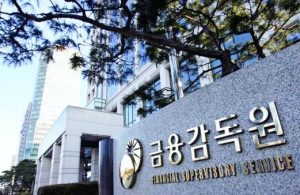GENERAL INFORMATION
Procedure for the election of the President of the Republic
According to the Finnish Constitution the President of the Republic is elected by a direct vote for a term of six years. The President shall be a native-born Finnish citizen. The same person may be elected President for no more than two consecutive terms of office.
The President is elected by a direct vote, if necessary in two rounds. Election day is the fourth Sunday of January. If one of the candidates receives more than half of the (approved) votes cast in the election, he/she is elected President. If none of the candidates has received a majority of the votes cast, a new election shall be held on the second Sunday after the first election between the two candidates who received most votes in the first election. The candidate receiving most votes in the second round is elected President. If only one candidate is nominated, he/she is appointed President without an election. The President assumes office on the first day of the month following the elections.
All the latest Presidents have been elected by direct elections in two rounds: President Martti Ahtisaari in 1994, President Tarja Halonen in 2000 and 2006 and President Sauli Niinistö in 2012. Before that the President was elected
– by Parliament in 1919 (President Ståhlberg) and 1946 (Paasikivi);
– by electors in 1925 (Relander), 1931 (Svinhufvud), 1937 (Kallio), 1950 (Paasikivi), 1956, 1962, 1968 and 1978 (Kekkonen), and in 1982 (Koivisto);
– by the electors of 1937 in 1940 and 1943 (Ryti);
– with a special enactment in 1944 (Mannerheim) and 1974 (Kekkonen); and
– through a combination of direct and electoral elections in 1988 (Koivisto).
Duties of the President
The highest State bodies in Finland are Parliament, the President of the Republic and the Government (Council of State). The legislative powers are exercised by the Parliament, which also decides on State finances. The governmental powers are exercised by the President of the Republic and the Government, the members of which shall have the confidence of the Parliament.
The duties of the President of the Republic are mainly related to foreign policy. The foreign policy of Finland is directed by the President of the Republic in co-operation with the Government. The Government is responsible for the national preparation of the decisions to be made in the European Union, and decides on the concomitant Finnish measures, unless the decision requires the approval of the Parliament.
The President of the Republic mainly takes his or her decisions on the proposal of the Government. The President appoints the Prime Minister on the proposal of the Parliament and other ministers on the proposal of the Prime Minister. The President of the Republic confirms the Acts adopted by the Parliament, and may, in particular cases, issue Decrees by virtue of a law enacted by the Parliament. The President of the Republic also appoints judges and highest-ranking State officials. In particular cases, the President may grant full or partial pardon from a penalty imposed by a court of law. The President of the Republic is the commander-in-chief of the defence forces. The President decides on matters of war and peace, with the consent of Parliament.


















































 At a meeting of the National Assembly’s Committee on Thursday, January 18, the Financial Supervisory Service (FSS) confirmed that some employees invested in cryptocurrencies and sold them just before the government announced crypto regulatory measures, local media reported.
At a meeting of the National Assembly’s Committee on Thursday, January 18, the Financial Supervisory Service (FSS) confirmed that some employees invested in cryptocurrencies and sold them just before the government announced crypto regulatory measures, local media reported. Recently, the FSS advised its employees to refrain from trading cryptocurrencies, stating that “If the supervisory officials engage in speculative transactions, it will be difficult for the public to understand ethically,” Chosun also
Recently, the FSS advised its employees to refrain from trading cryptocurrencies, stating that “If the supervisory officials engage in speculative transactions, it will be difficult for the public to understand ethically,” Chosun also 

